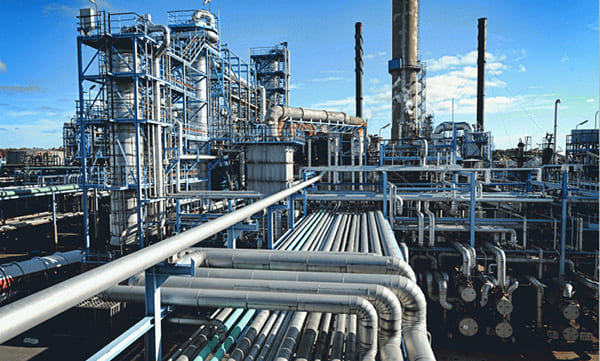Solomon’s EII® metric is a key element of proposals presented to Washington refineries by the Washington Department of Ecology.
DALLAS – June 10, 2014 – HSB Solomon Associates, LLC (Solomon), the leading performance improvement company for the global energy industry, today announced it has been working in collaboration with the refining industry and state officials in Washington to assist in establishing a regulatory framework designed to help control greenhouse gas emissions from Washington’s five petroleum refineries.
The Washington Department of Ecology has begun the process of controlling greenhouse gas emissions by adopting a new rule under RCW 70.94.154. The rule requires all Washington stationary sources to have reasonably available control technology (RACT). Refineries are being presented with two options to meet the requirement.
The first compliance option requires refineries to use Solomon’s Energy Intensity Index™ (EII®) to benchmark their energy efficiency against other similar-sized refineries in the nation. Solomon’s proprietary metric is based on the industry’s largest database of energy management data and an in-depth understanding of refinery energy and emissions efficiency. EII has become the global refining industry gold-standard for assessing the efficiency of energy usage, one of the primary drivers of combustion-related greenhouse gas emissions.
As cited in the rule, a refinery will be considered compliant if it has a calculated EII equal to or more efficient than the EII value representing the 50 percentile EII of similar-sized United States refineries, based on 2006 performance data and the EPA EnergyStar® Program’s methodology designed specifically for the refining industry.
The second compliance option allows a refinery to comply by reducing its emissions of greenhouse gases. Emissions reductions achieve compliance with the RACT requirement if they implement greenhouse gas reduction projects that do either of the following:
1. Result in cumulative annual emissions reductions equivalent to 10 percent of the facility’s baseline greenhouse gas emissions.
2. Result in the petroleum refinery meeting the EII standard from Solomon.
“We’re pleased to help Washington refineries control greenhouse gas emissions by leveraging our benchmarking data,” said Dale Emanuel, President and CEO of Solomon. “We welcome a conversation with any of the affected plant managers to discuss our EII benchmarking methodology.”

.jpg)
.jpg)
.jpg)
.jpg)
-updated.jpg)



.jpg)

-updated.jpg)

-updated.jpg)
-updated.jpg)
.jpg)
.jpg)
.jpg)
.jpg)
.jpg)
.jpg)
.jpg)
.jpg)
.jpg)
.jpg)
.jpg)
.jpg)
.jpg)

.jpg)
.jpg)
.jpg)
.jpg)
.jpg)

.jpg)